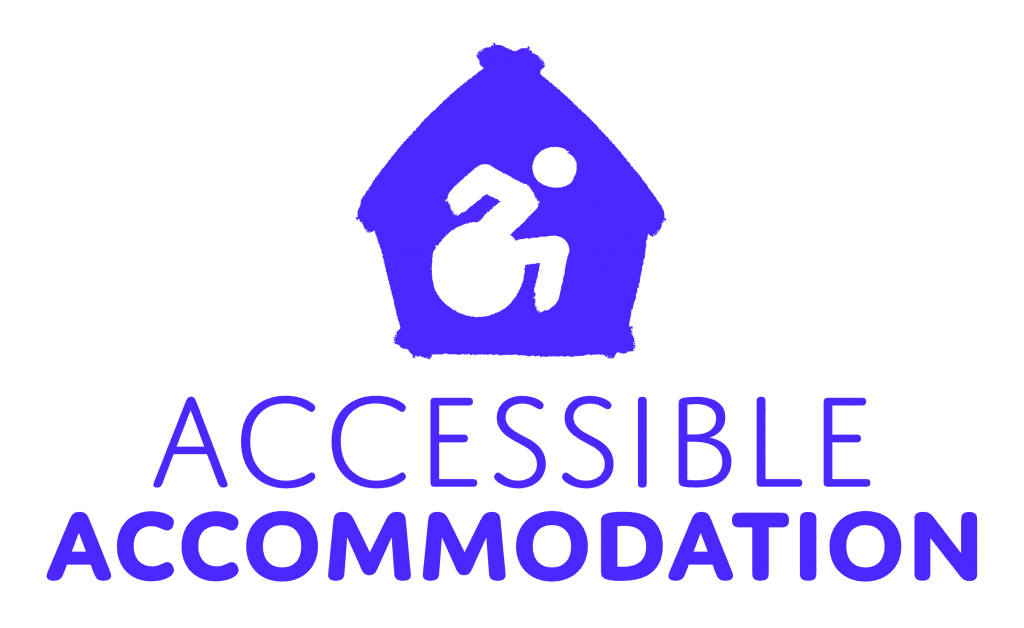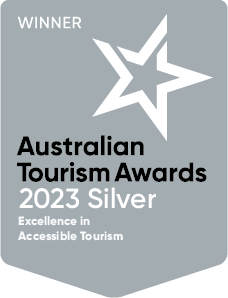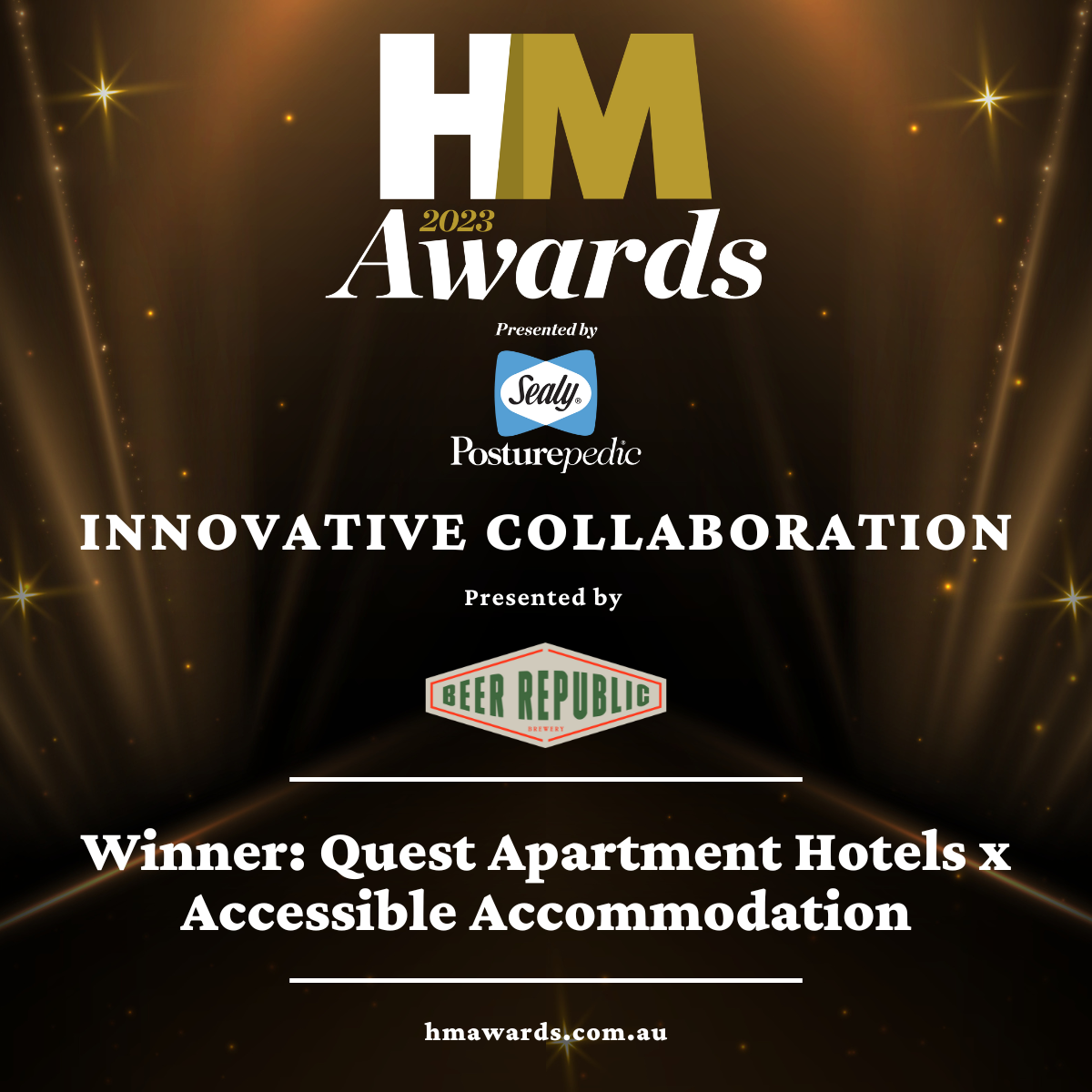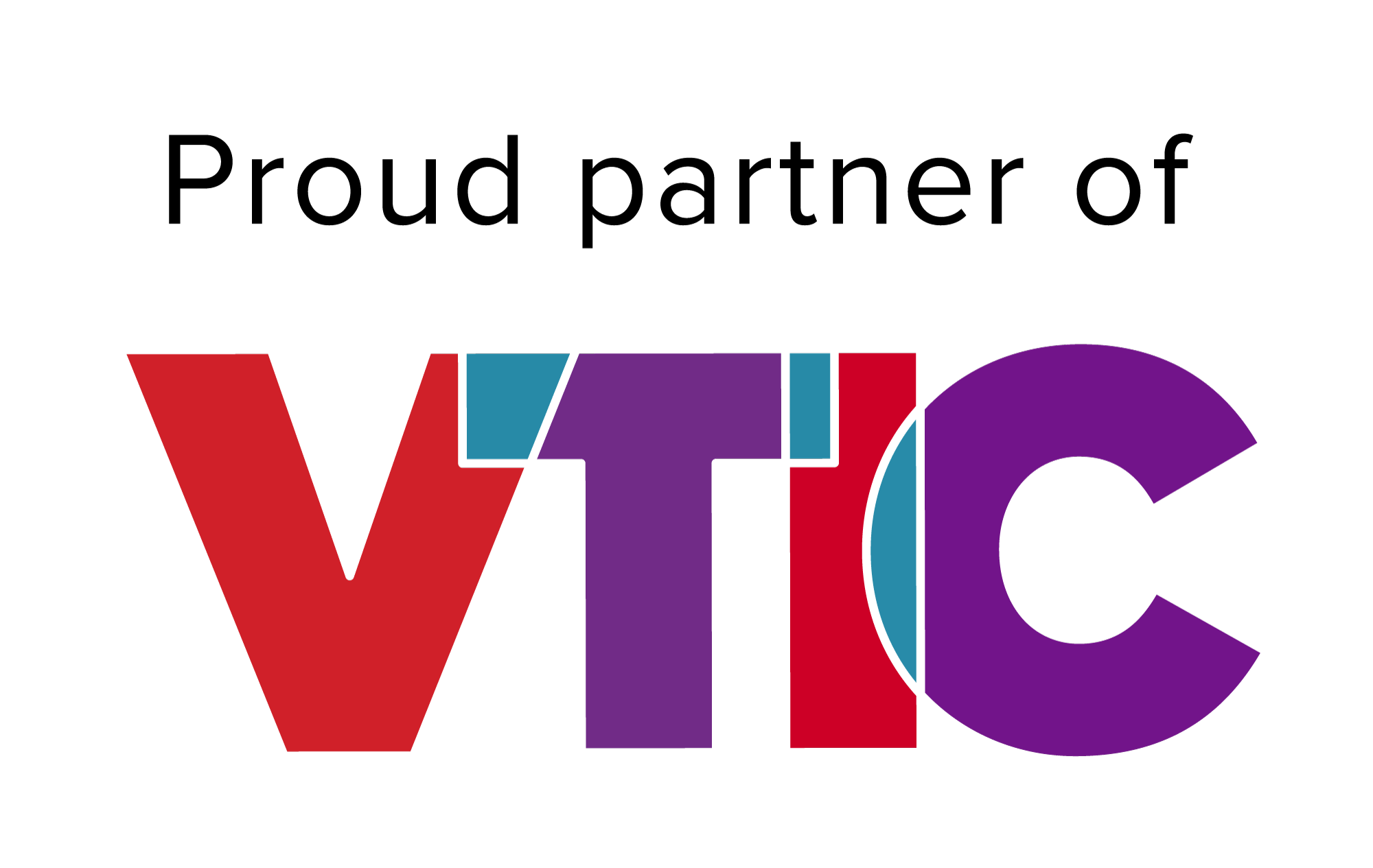NDIS (STA) Short Term and (MTA) Mid Term Accessible Accommodation through The NDIS.
Thankfully the Australian Government’s NDIA (National Disability Insurance Agency) through the NDIS (National Disability Insurance Scheme) recognises the need for people with disability, their Carers or Support Workers – to access inclusively designed accessible accommodation. As a result, it has added short and medium-term accessible accommodation as a potential service to be included within individual plans. (Formerly known as Respite).
However, at Accessible Accommodation, we know that this service is not widely known, and the details of what it can provide are often misunderstood. This blog – the first in a two-part series – will help to clarify if you might be eligible to have it included in your NDIS plan, and how to apply and use the funding if you tick the boxes.
We will demystify the questions surrounding NDIS funded short-term and medium-term accessible accommodation, but are always available to answer questions over the phone via 1300 180 889.
We will start with the definitions…
What is Short-Term Accommodation (STA)?
Short Term Accommodation (STA) is a ‘short stay away from home’ usually funded up to 28 days per year and can be taken in shorter blocks spread out over the 12 months. It can be used as respite for when you (the participant), needs to live away from home for a period of time. This can also give your informal carers (spouse, friend, parent, child etc.) a break, either away from their caring role or by joining you in a different, fresh, restorative surrounding. But it can be a grey area, more on that later.
STA can also include a group or shared living arrangement, personal care, food, and activities in addition to the cost of accommodation.
If you are looking for respite, to recoup, escape the realities of everyday life, or help meet your NDIS goals, STA is probably what you’re looking for.
Fact of fiction: Can NDIS fund a “holiday for me and my friends”?
Lines can blur between one’s understanding of respite and a holiday, as essentially, they both facilitate rest. This is why there is a common perception that a “holiday” can be funded, and/ or friends too. We often encounter this.
The intent behind NDIS is to help achieve the participant’s goals, not to pay for holidays or for friends.
Because Accessible Accommodation cover holidays, NDIS Short to Medium Term Stays as well as Respite, our STA/ Respite options are broad. From Hotels, Motels, Apartments, to Short Stay Houses and Resorts / Caravan Parks etc. There is presently no restriction on where you stay or the type of place you stay in. Any one of our listings is available for your STA/ MTA and Respite.
Some accommodation is a flat rate, whether it is one or multiple guests. In this case, you can possibly have friends and family join you for STA/Respite without additional out of pocket costs.
Some accommodation rate is per person. For example, a Short Stay House might be $300 per night for up to 4 guests and $20 per person per night for the remaining additional guests. If you do have family members or friends join you, Accessible Accommodation invoice them separately.
In other words, NDIS may assist you in funding for yourself (the participant) and your Carer or Support Worker(s). It isn’t designed to fund friends. But some properties price is the same whether your friends stay or not.
Accessible Accommodation are there to help you find accommodation. It is up to the participant and their Support Coordinator/ Plan Manager to ensure the accommodation is booked for the right intent. Whilst (for privacy) we can’t police it we very much encourage this.
What Is Medium-Term Accommodation (MTA)?
Medium-Term Accommodation (MTA) is designed to allow NDIS participants a safe, appropriate temporary housing solution for up to three months, and perhaps longer depending on your situation. If you are having house modifications, are on a waiting list after becoming eligible for Specialist Disability Accommodation or are at risk of being admitted to aged care, this is what you’re looking for.
MTA funding can only be used for the cost of accommodation. Any other related supports such as support workers or transport must be funded from another line-item or sub-category.
Both STA and MTA can be used as needed in the case of required quarantining or self-isolation.

What Is Specialist Disability Accommodation (SDA)?
This is worth mentioning as there can be confusion over what is SDA versus STA. SDA is a long-term residential housing solution for those NDIS participants that have high support needs and significant functional impairment. Here at Accessible Accommodation, we don’t address this type of specialised housing.
Your NDIS Plan
NDIS is set up to ‘…provide all Australians with a permanent and significant disability, aged under 65, with the reasonable and necessary supports they need to live an ordinary life.’ And ‘… will also fund reasonable and necessary supports that help participants achieve their goals.’ This can include medical needs-based services, such as equipment, medical appointments and therapy services. It can also include lifestyle-focused services, including accommodation.
Click HERE for the link to see more info on NDIS supports.
The first step is to have an NDIS planning meeting with either your Local Area Coordinator (LAC) or your NDIA planner. You may wish to engage a Support Coordinator who is an independent person to assist you, the participant, in organising and researching the supports you need.
An important part of your NDIS Plan is your “life goals” – a list that outlines how you wish to live your life, despite your disability. We encourage you to think broadly about these goals – not just your daily home needs but what would enhance and improve your life. To have the best chance of securing STA or MTA, we advise you to include a goal that explicitly mentions your desire for this service.
Some examples include:
- I wish to continue/enhance/establish my connection within the community
- I wish to continue/enhance my access to the outdoors and nature
- I wish to maintain/establish/ reconnect with sporting and interest groups
- I wish to continue/enhance/establish my engagement in outside home family activities
- I wish to improve my capacity to travel independently
- I wish to explore options for suitable specialist short term disability accommodation to connect with nature/friends/ family.
Your goals are uniquely your own, and this list is not at all exhaustive, but as long as your goals and the requested corresponding supports (such as accessible accommodation) are reasonable and necessary you have a greater chance of having funding approval for STA or MTA. Click HERE for more information on the NDIS website.
Click HERE for the pricing table.
In Part 2 of our Short- and Medium-Term Accessible Accommodation series we’ll look at how the NDIS budget categories work and how to use them. We will also cover Accessible Accommodation’s booking service, a valuable resource. Most accommodation can only be paid AFTER the stay. Accommodation providers won’t accept this (requiring payment prior). We will tell you how easy it is to overcome this challenge with our booking service.
Next Steps:
Find NDIS STA and MTA (short to mid-term) accessible accommodation HERE.
Read part two HERE where we will help clarify where it should be included in your NDIS plan. Also, which support budget you can use.
Subscribe to our newsletter to stay updated on brand new places to stay. CLICK HERE
Call our NDIS Booking Service, staffed by people with disabilities – we get it! 1300 180 889
Please note this article about NDIS (STA) Short Term and (MTA) Mid Term Accessible Accommodation through The NDIS, and information has been sourced from the NDIS website. NDIS guidelines change frequently, and we will endeavour to ensure this blog is kept up to date. It is meant as a guide only and may not be up to date at the time of reading this article. Do check with whoever assists you with your NDIS plan to ensure you have all the information necessary.
Written by Leanne Watson and Kerry Williams of Accessible Accommodation. Read more about Leanne’s journey with NDIS HERE.

© 2024 The Accessible Group Pty Ltd trading as Accessible Accommodation
https://www.theaccessiblegroup.com
ABN: 72 646 700 487
Contact Info
- enquiry@theaccessiblegroup.com
- 1300 180 889
- P O Box 1328, Barwon Heads, VIC 3227






NB: All information, images and data displayed on this website is property of, or used with permission by, The Accessible Group Pty Ltd T/A Accessible Accommodation (Accessible Accommodation) and cannot be copied without express permission from Accessible Accommodation. In addition, the booking pages for properties listed on Accessible Accommodation may list both accessible and non-accessible rooms. All accessible rooms are indicated in the room title. Accessible Accommodation bears no responsibility for the booking of an incorrect room type.





